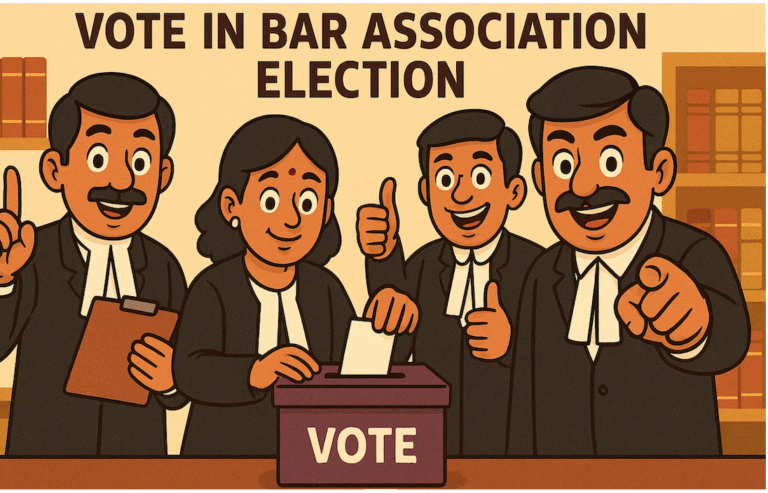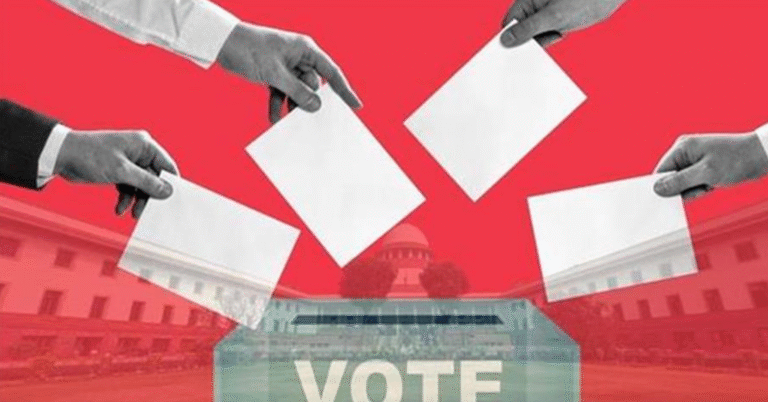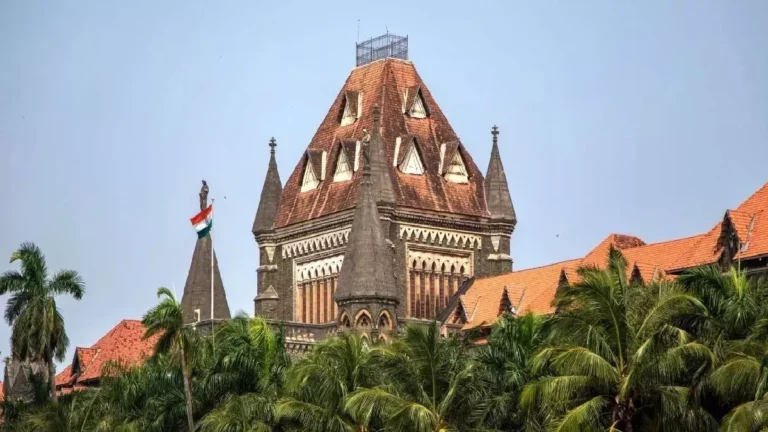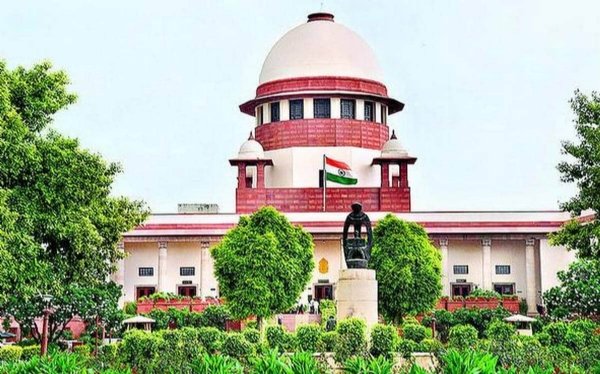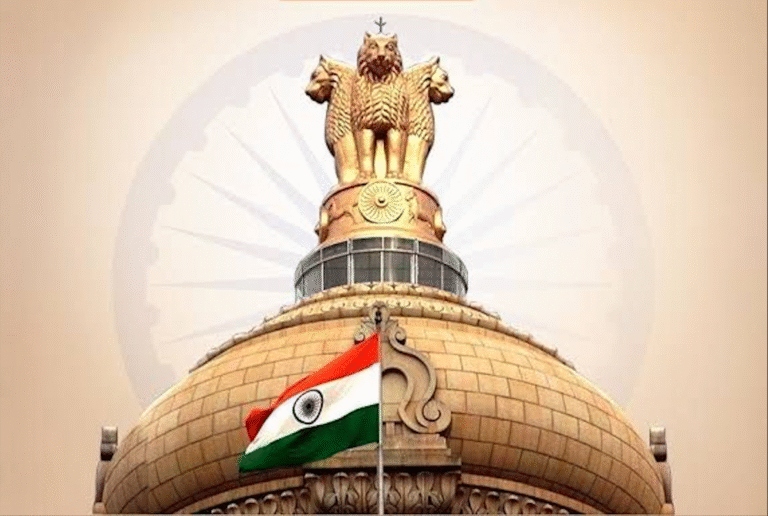Trouble Deepens for Bombay High Court Chief Justice Chandrashekhar as President’s Secretariat Transfers Complaint with Pen Drive to Department of Justice for Action
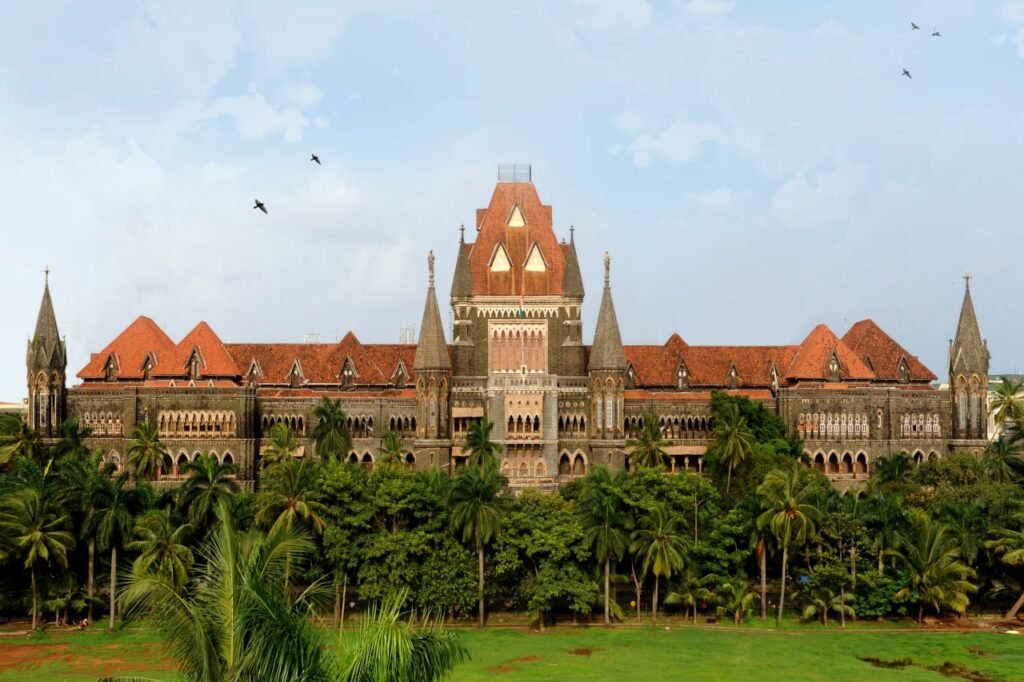
Justice Gadkari Recuses from Hearing Writ Petition of Fifteen Advocates Seeking ₹7.5 Crores Compensation for Violation of Rights Due to Unlawful Order Passed despite prohibitory orders of the Supreme Court Guidelines
Justice Chandrashekhar has been alleged to have followed the path of Justice C.S. Karnan, by openly defying the Constitution of India and the binding judgments of the Supreme Court, and by issuing orders in direct violation of the Apex Court’s restrictions and guidelines. He has reportedly declared that he is not bound to hear parties, consider their prayers or binding precedents, or pass reasoned orders, and has even threatened advocates with custody if they cite or rely upon Supreme Court judgments.
Recently, in Shikhar Chemicals v. State of U.P., 2025 SCC OnLine SC 1653, Hon’ble Justice J.B. Pardiwala of the Supreme Court of India strongly condemned the poor level of legal understanding displayed by a High Court judge and directed the Chief Justice of that High Court not to assign any judicial work to the said judge, emphasizing that such incompetence and disregard for settled law cannot be tolerated within the judiciary.
Similarly, in Court on its Own Motion v. Jayant Kashmiri, 2017 SCC OnLine Del 7387, a Judge who initiated contempt proceedings against an advocate for relying on a Supreme Court judgment was reprimanded, and the Court held that he had misused the contempt power and required judicial training for his failure to appreciate the binding nature of Supreme Court precedents.
Likewise, in Hakim Nazir Ahmad v. Commissioner, 2025 SCC OnLine, a Judge was directed to undergo judicial training for failing to pass a reasoned order, reaffirming that lack of judicial competence and disregard for procedural fairness constitute serious judicial impropriety warranting corrective measures.
The Supreme Court, in P. Radhakrishnan v. Cochin Devaswom Board, 2025 SCC OnLine SC 2118, has categorically warned judges against passing orders that intimidate parties or advocates, observing that such actions create a chilling effect on litigants, discourage citizens from approaching the courts, and ultimately erode the rule of law. Despite being made aware of these binding precedents, Chief Justice Chandrashekhar willfully acted in defiance of the Supreme Court’s clear directions, refusing even to consider or examine the judgments cited before him. Such conduct amounts to a deliberate and conscious disobedience of the law declared by the Supreme Court, thereby rendering him guilty of civil contempt under Sections 2(b) and 12 of the Contempt of Courts Act, 1971.
Chief Justice Chandrashekhar is alleged to have objected to the length of pleadings and the number of judgments cited by advocates, and even used this as a ground to threaten them with custody. Such conduct stands in direct violation of the law declared by the Supreme Court’s larger Bench, headed by Justice J.B. Pardiwala, in Amrish Rajnikant Kilachand v. Secretary General, Supreme Court of India, 2023 SCC OnLine SC 2511, where it was categorically held that no restrictions can be imposed on the length of pleadings or number of pages filed by parties.
The practice and law is settled that if a court finds the pleadings voluminous or complex, it may direct the parties to submit a concise written summary or brief note of submissions, but cannot curtail the advocates’ right to rely on relevant precedents or detailed pleadings necessary to support their case.
Further, in Bar Council of India v. High Court of Kerala, (2004) 6 SCC 311, the Supreme Court warned that contempt jurisdiction is among the most misused and misunderstood branches of law and emphatically held that it cannot be invoked to silence advocates or restrict legitimate methods of advocacy. The Apex Court has also consistently ruled that parties are duty-bound to place before the court all binding judgments—whether favorable or adverse—and that suppression of such precedents constitutes professional misconduct.
In sharp contrast, Chief Justice Chandrashekhar has adopted a completely contrary and alarming approach, seeking to penalize advocates for citing Supreme Court judgments, an act that has deeply shaken the legal fraternity and raised grave concerns about judicial accountability and adherence to constitutional discipline.
The crisis surrounding Chief Justice Chandrashekhar of the Bombay High Court has intensified after the President of India’s Secretariat formally transferred a detailed complaint supported by digital evidence (pen drive) to the Director, Department of Justice – Smt. Radha Katyal Narang for further action.
The President of India’s Secretariat, upon deeply examining the complaint against him for six consecutive days, has formally transferred the matter to the Director, Department of Justice — Smt. Radha Katyal Narang — for further necessary action.
The complaint, filed by the father of late Disha Salian and the Indian Lawyers and Human Rights Activists Association (ILHRA), is supported by a sworn affidavit and a pen drive containing substantial evidentiary material, including recorded evidence of the alleged misbehaviour of Chief Justice Chandrashekhar.
The complaint alleges grave judicial misconduct, abuse of authority, and a shocking lack of basic legal knowledge and acumen required to interpret and apply constitutional and statutory provisions. It further states that Chief Justice Shri Chandrashekhar wilfully refused to follow the Constitution of India and binding Supreme Court precedents, which amounts not only to contempt of the Supreme Court but also constitutes a ground for his immediate dismissal from judicial office. The complaint draws parallels to the precedent of Justice C.S. Karnan’s case.
It asserts that the Chief Justice’s conduct reflects gross judicial impropriety, violation of the oath of office, and abuse of constitutional authority. By threatening advocates for citing Supreme Court judgments and refusing to adhere to binding legal principles, he is alleged to have undermined the authority of the Supreme Court and violated the fundamental guarantees of equality, freedom of expression, and personal liberty under Articles 14, 19, and 21 of the Constitution.
The case bears striking similarity to that of Justice C.S. Karnan, who had likewise defied the authority of the Supreme Court by refusing to follow its binding judgments and constitutional directives, and continued to issue arbitrary, whimsical, and legally untenable orders in open defiance of established law.
The complaint contends that Chief Justice Chandrashekhar’s conduct mirrors this pattern of judicial indiscipline and constitutional disregard, warranting immediate intervention and disciplinary action at the highest level.
The matter now lies before the Department of Justice, which is expected to scrutinize the evidence and recommend appropriate action in accordance with constitutional and statutory provisions.
Filing of Writ Petitions by Advocates Seeking Compensation and Recusal of Justice Gadkari:-
Aggrieved by the gross judicial misconduct and illegal actions of Chief Justice Chandrashekhar, a group of fifteen advocates have filed separate Writ Petitions before the Bombay High Court, seeking compensation of ₹50 lakhs each for the violation of their fundamental rights arising from the unlawful and arbitrary order passed by the Chief Justice.
The following advocates have filed the petitions: – Adv. Vijay Kurle, Adv. Ishwarlal Agarwal, Adv. Partho Sarkar, Adv. Abhishek Mishra, Adv. Anushka Sonawane, Adv. Devkrishna Bhambri, Adv. Shivam Gupta, Adv. Vikas Pawar, Adv. Nicky Pokar, Adv. Meena Thakur, Adv. Priyanka Sharma, Adv. Sonal Manchekar, Adv. Sagar Ugle, Adv. Nikita Kinjara, and Adv. Jayendra Manchekar.
When the matter came up for hearing before Hon’ble Justice A.S. Gadkari on 04.11.2025, He graciously recused himself from the case, citing conflict of interest, thereby upholding the highest standards of judicial propriety and transparency.
Two Separate Complaints Filed Against Chief Justice Chandrashekhar :-
Two distinct complaints have been received by the President’s Secretariat:
(i) Complaint by Mr. Satish Salian, father of late Disha Salian, registered as Case No. PRSEC/E/2025/0061948, which is still under examination before the President’s Secretariat; and
(ii) Complaint by the Indian Lawyers and Human Rights Activists Association (ILHRA), received on 01.11.2025, registered as File No. PRSEC/E/2025/0061483, and transferred on 07.11.2025 to the Department of Justice for further legal and administrative action.
Both complaints are on affidavit and supported with digital evidence (pen drives containing case records, court proceedings, and video material).
CHARGE # 4 :- Threats to Advocates for Citing Supreme Court Law :-
It is alleged that Chief Justice Chandrashekhar threatened to take advocates into custody if they filed applications based on Supreme Court rulings—a move that directly contradicts binding law laid down by the Hon’ble Supreme Court in:
(i) State of U.P. v. Association of Retired Supreme Court & High Court Judges, (2024) 3 SCC 1;
(ii) P.K. Ghosh v. J.G. Rajput, (1995) 6 SCC 744; and
(iii) Chetak Construction Ltd. v. Om Prakash, (1998) 4 SCC 577.
In these landmark rulings, the Supreme Court categorically condemned any judicial intimidation of advocates and held that lawyers cannot be punished, threatened, or subjected to contempt proceedings merely for exercising their legitimate right to file recall or recusal applications. Even if their submissions are unmeritorious, such actions must never invite contempt or coercive measures.
A similar instance was noted in Court on its Own Motion v. Jayant Kashmiri, 2017 SCC OnLine Del 7387, where a judge who initiated contempt proceedings against an advocate for relying on a Supreme Court judgment was reprimanded, and the Court held that the judge had misused the contempt power and required judicial training for his failure to understand the binding nature of Supreme Court precedents.
CHARGE # 5:- Allegations: Misuse of Office and Violation of Judicial Ethics:-
The petitioners have sought criminal prosecution of Chief Justice Chandrashekhar under the provisions of the Bharatiya Nyaya Sanhita (BNS) and the Contempt of Courts Act, citing instances of:
(A) Deliberate abuse of authority and lack of judicial propriety,
(B) Arrogant and discourteous behaviour toward advocates,
(C) Lack of basic legal knowledge and poor understanding of constitutional provisions,
(D) Wilful disobedience of binding Supreme Court judgments, and
(E) Efforts to shield accused persons by suppressing lawful applications and binding precedents.
It is alleged that the Chief Justice threatened to take advocates into custody if they filed applications based on Supreme Court rulings — a move that directly contradicts the binding law laid down by the Supreme Court in:
· State of U.P. v. Association of Retired Supreme Court & High Court Judges, (2024) 3 SCC 1,
· P.K. Ghosh v. J.G. Rajput, (1995) 6 SCC 744, and
· Chetak Construction Ltd. v. Om Prakash, (1998) 4 SCC 577.
These rulings clearly hold that advocates cannot be punished or intimidated for exercising their legitimate right to file recall or recusal applications, and that even if their arguments are unmeritorious, they must not be subjected to contempt action or threats of custody.
Supreme Court’s Position: Custody Powers Must Be Used only in extraordinary circumstances like physical aggression and not against advocates and parties.
In Mehmood Pracha v. Central Administrative Tribunal, 2022 SCC OnLine SC 1029, the Supreme Court clarified that the power to take a person into custody during court proceedings can be exercised only in exceptional cases of physical aggression, such as throwing footwear or using abusive language, and not against advocates or litigants who merely file lawful applications or plead legal positions.
Despite such clear directions, the Chief Justice allegedly threatened advocates with arrest merely for citing Supreme Court judgments, amounting to gross abuse of judicial power.
CHARGE # 6:- Violation of Supreme Court Guidelines on Adverse Remarks :-
It is further alleged that in the order dated 17.09.2025, Chief Justice Chandrashekhar made adverse and disparaging remarks against fifteen advocates behind their back, without granting them an opportunity to be heard. This action is in direct violation of the law laid down by the Hon’ble Supreme Court in: Dushyant Mainali v. Diwan Singh Bora, 2024 SCC OnLine SC 5178, and Neeraj Garg v. Sarita Rani, (2021) 9 SCC 92, wherein the Apex Court categorically ruled that no judge shall pass adverse remarks against an advocate without first hearing them and permitting them to explain their stand.
CHARGE # 7:- Chief Justice Chandrashekhar’s Ignorance of Basic Legal Principles on Binding Precedents and Larger Bench Rulings
Chief Justice Chandrashekhar has also been charged with lacking even the basic understanding of the law relating to binding precedents, per incuriam rulings, and overruled judgments. It has been alleged that he displayed ignorance of the settled principle that a judgment of a larger Bench prevails over that of a smaller Bench.
Despite this well-established rule, the Chief Justice erroneously relied upon the overruled two-Judge Bench decision in Pritam Pal v. High Court of Madhya Pradesh and refused to follow binding larger Bench judgments including Bal Thackeray v. Pimplekhute, (2005) 1 SCC 254; Dr. L.P. Misra v. State of U.P., (1998) 7 SCC 379; and Pallav Sheth v. Custodian, (2001) 7 SCC 549 — thereby demonstrating a serious lack of judicial competence and disregard for established law.
CHARGE # 8 :- Passing order without jurisdiction in contempt of guidelines by the Constitution Bench of the Hon’ble Supreme Court in Supreme Court Bar Association v. Union of India, (1998) 4 SCC 409.
Chief Justice Chandrashekhar has been accused of illegally issuing an ex-parte declaration of guilt for professional misconduct against fifteen advocates, in blatant violation of the prohibitory guidelines laid down by the Constitution Bench of the Hon’ble Supreme Court in Supreme Court Bar Association v. Union of India, (1998) 4 SCC 409.
In the said judgment, the Supreme Court categorically held that neither the High Court nor even the Supreme Court possesses jurisdiction to record findings or impose punishment relating to professional misconduct of advocates, as such matters fall exclusively within the disciplinary domain of the Bar Council of India under the Advocates Act, 1961.
Thus, the Chief Justice’s action constitutes a clear transgression of constitutional limits and a direct violation of binding Supreme Court precedent.
CHARGE # 9 :- Conscious Disregard and Contradictory Orders Prove Misconduct: CJ Chandrashekhar’s Order Defies Supreme Court Law on Reasoned Judgments :-
Chief Justice Chandrashekhar has been accused of conscious and wilful disregard of binding Supreme Court law, as reflected in his contradictory judicial orders. In his order dated 16.10.2025, he summarily rejected a petition without addressing the petitioner’s specific grounds or prayers, claiming that no law mandates consideration of all issues.
This stance directly violates the Supreme Court’s binding judgment in Vishal Ashwin Patel v. CIT, (2022) 14 SCC 817, which emphasizes that reasons form the soul of judicial decisions and that courts must independently examine every issue raised by the parties.
Ironically, in an earlier case — Registrar, Nilamber Pitamber University v. State of Jharkhand, 2023 SCC OnLine Jhar 1635 — the same Chief Justice had himself held that reasoned orders are indispensable to judicial fairness. These contradictory positions demonstrate conscious judicial inconsistency, breach of Article 14, and clear misconduct, amounting to a violation of the oath of office to apply the law equally and without bias.
Past Precedents: Disciplinary and Criminal Action Against Erring Judges :-
The Supreme Court and various High Courts have, on earlier occasions, taken strict disciplinary and criminal action against judges found guilty of conduct similar to that alleged against Chief Justice Chandrashekhar — including contempt proceedings, withdrawal of judicial work, departmental inquiries, suspension, and even criminal prosecution.[Re C S Karnan (2017) 7 SCC 1, In Re. M.P. Dwivedi (1996) 4 SCC 152, Superintendent of Central Excise Vs. Somabhai Ranchhodhbhai Patel (2001) 5 SCC 65, Prabha Sharma Vs Sunil Goyal (2017) 11 SCC 77, R.R. Parekh v. High Court of Gujarat, (2016) 14 SCC 1, Muzaffar Husain v. State of U.P., 2022 SCC OnLine SC 567, Harish Arora v. Registrar of Coop. Societies, 2025 SCC OnLine Bom 2833, Mohd. Nazer M.P. v. State (UT of Lakshadweep), 2022 SCC OnLine Ker 7434, Prominent Hotels Vs. New Delhi Municipal Corporation 2015 SCC OnLine Del 11910]
Grave Constitutional Implications and Next Steps :-
The two complaints collectively expose what has been described as a serious constitutional crisis within the Bombay High Court, alleging that the conduct of Chief Justice Chandrashekhar has eroded public confidence in the judiciary and violated the foundational principle of equality before law.
The Department of Justice is now expected to initiate a detailed preliminary examination of the evidence and recommend appropriate proceedings, which may include:
· Directing the Central Bureau of Investigation (CBI) to undertake a criminal investigation and prosecution, after completing the necessary formalities for obtaining permission from the Chief Justice of India (CJI);
· Advising the Attorney General for India to file a contempt petition before the Hon’ble Supreme Court for deliberate defiance of its binding judgments; and
· Commencing impeachment proceedings under the Judges (Inquiry) Act, 1968, in accordance with the constitutional process laid down in Articles 124(4) and 217(1)(b) of the Constitution of India.
Legal experts have termed the development “unprecedented in the judicial history of Indian High Courts,” noting that, except for Justice C.S. Karnan, no sitting Chief Justice has ever been accused of openly defying the Constitution and binding judgments of the Supreme Court or of issuing orders in direct violation of the Apex Court’s restrictions and guidelines.
They emphasized that this episode represents a critical test of institutional integrity and judicial accountability. Experts have warned that failure to take prompt and decisive action in such a grave matter would irreparably damage the credibility and reputation of the judiciary and shak

